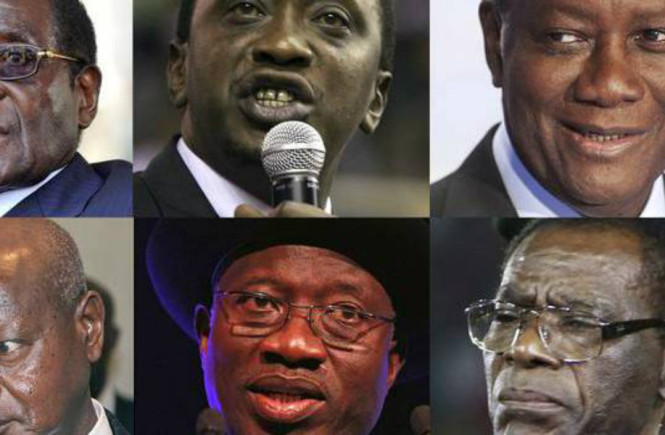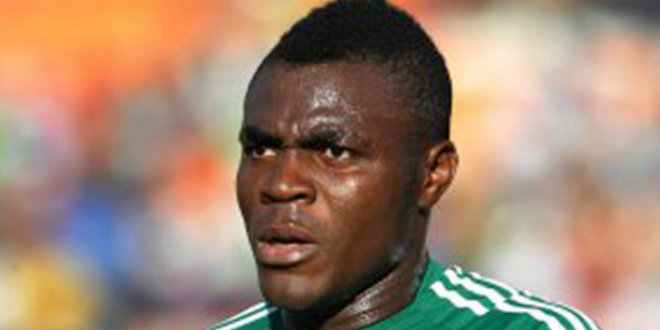9. Peter Mutharika- Malawi
- Born in 1940
- Studied law at the US’s Yale University and University of London
- Former law professor at Washington University
- Elected MP in 2009
- Brother of late President Bingu wa Mutharika
- Justice, education and foreign minister in brother’s cabinet
- Accused of plotting coup in 2012; denies treason charge
Arthur Peter Mutharika (APM) was a very active member of the youth league of the MCP, good friend of Chakufwa Chihana, Jomo Chikwakwa, Masauko Chipembere and Atati Mpakati. He was still a student when cabinet crisis happened so he decided to concentrate on his studies and obtained his Phd at 29. Sadly he could not return because his brother left under suspicious circumstances leading to the attack on his family by the MYP zealots in particular his father who died 11 months later.
However, he joined other freedom fighters offering free legal services to Lesoma and Mafremo as their legal advisor. Based in Tanzania he also met and interacted with other liberation movements in the region and made available his services to help them frame ideal constitutions in their various countries upon being liberated.
The death of Atati Mpaka,Masauko Chipembere and the arrest of Orton Chirwa his closest friends in the struggle against Dr Banda’s oppression made him to relocate to the USA. In the USA, he met Mponda Mkandawire and Meki Ntewa and other people who were involved in the early formation stages of the Alliance for Democracy. The campaign alongside efforts by other people like Aleke Banda,Bakili Muluzi,John Lwanda and Tiyambe Zereza to mention a few bore fruits. He was then invited by the public affairs committee and others to preside over the constitutional conference as a resource person. It is said that our constitution has seven chapters.
When UDF, came into office, Dr Bakili Muluzi invited him into cabinet so he could became post MCP- Malawi’s first minister of justice but he declined the offer because of his loyalty and affiliations to Meki Ntewa, Mponda Mkandawire and his best friend Chakufwa Chihana who at that time were in the opposition party-Aford. When the office of the Director of Anti Corruption Bureau, Dr Muluzi approached him once more to head it as its first director but he again let the opportunity passed because his ties to his colleagues in AFORD were so strong. Being a lawyer yourself, you certainly be aware that APM contributed 4 of the 7 chapters of our constitution, his works are well documented after leaving Malawi than before living in Malawi.
8. President Paul Biya- Cameroon
His Excellency Paul Biya was born on 13 February 1933 at Mvoméka’a, Meyomessala Subdivision, Dja-et-Lobo Division, South Province. President Paul Biya is the second President of the State of Cameroon. He assumed office on 6 November 1982 following the resignation of President Ahmadou Ahidjo. President Paul Biya is married and has three children.
Born on the 13th February 1933 at Mvomeka’a (Meyomessala) of the late Etienne Mvondo Assam and Mrs MVONDO (born Anastasie Eyenga Elle).
Education
1948: First School Leaving Certificat (CEPE) (Nden);
1948/1950: St. Tharcissius Pre-seminary, Edea;
1950/1954: Akono Minor Seminary;
June 1953: BEPC
1954/1956: Lycee General Leclerc
June 1955: Baccalaureat lere partie
June 1956: Baccalaureat 2e partie Lycee Louis le Grand (Paris).
University education
Degree in Public Law, Diploma of the Institut d’Etudes Politioues, Diploma from the Institut des Hautes Etudes d’Outre-Mer.
Diplôme d’Etudes Superieurs in Public law.
Honorary Distinctions
Mr BIYA is a holder of many decorations and honorary distinctions:
- Grand Master of the National Orders (Republic of Cameroon);
- Grand-Croix of the Legion of Honour (Republic of France);
- Great Commander of the Medal of St-George (United Kingdom and North Irland);
- Grand-Croix de classe exceptionnelle (Federal Republic of Germany);
- Grand Collier de I’Ordre du Ouissam Mohammadi (Kingdon of Marocco);
- Great Commander of the Order of Niger (Federal Republic of Nigeria);
- Grand-Croix de I’Ordre National du Mérite (Republic of Senegal);
- Commander of the National Ordre (Republic of Tunisia);
- Doctoris Honoris Causa (University of Maryland, USA);
- Professor emeritus (University of Beijing, Republic of China).
Publications
Mr. BIYA is the author of a political essay entitled “Communal Liberalism”.
This work has been translated into English, German and Hebrew.
In it the Head of State announces the advent of multiparty politics (which became effective in 1990) after the temporary period of the one party State. He explains his choice for economic liberalism and private initiative while at the same time advocating national solidarity, equitable distribution of the benefits of economic growth, social justice, the development based on inventiveness and peaceful co-existence of various cultures and peoples who make up the nation.
Finally, he reaffirms the need for modernisation of the State and the desire to maintain close cooperation ties with other countries of the world.
7. President Jakaya Mrisho Kikwete – Tanzania
Kikwete attended Msoga Primary School from 1958 to 1961, followed by Lugoba Middle School from 1962 to 1965. This followed with his O-level education at Kibaha Secondary School from 1966 to 1969. His advanced level education was completed at Tanga Secondary School followed by a degree in Economics at the University of Dar es Salaam from 1972 to 1975.
Kikwete’s grandfather Mrisho Kikwete was a local chief and his father became a District Commissioner in colonial Tanganyika, Regional Administrative Secretary, and then an Ombudsman in post-colonial Tanganyika and the United Republic of Tanzania. He learnt much of his leadership skills from these two hugely influential men in his life. During school, Kikwete was naturally elected for leadership, which effortlessly led to TANU and CCM party youth movements after school.
He became active in student politics and was elected Vice President of the Dar es Salaam University Students Organisation and de-facto President of the student government at the Main Campus in 1973/74. In this capacity, he was at the forefront of activism in liberation and anti-apartheid politics. He represented African University students at international conferences, such as the International Youth Population Conference in Bucharest, Romania in 1974.
After graduating, Kikwete joined the ruling party. Kikwete served in the Tanzanian military, becoming the Chief Political Instructor of the Tanzania People’s Defence Forces in 1984. He also rose through army ranks to become a political instructor in the military academy and retired as a Lieutenant Colonel in 1992. He has been in the cabinet since 1988 and was previously Minister of Finance and Minister of Energy and Minerals.
6. President Dr. Thomas Yayi Boni – Benin
Educated in Parakou, and later studied economics at the National University of Benin.He studied banking at Cheikh Anta Diop University in Dakar, Senegal, and later economics and politics at the University of Orléans in France and at Paris University, where he completed a doctorate in economics in 1976.
Thomas Boni Yayi won presidential elections in March 2006, and again in 2011. He won 75% of the votes in the 2006 polls, but managed only 53% in the 2011 elections. These later polls were postponed twice and their results were disputed by the main challenger, Adrien Houngbedji.
Mr Yayi a former head of the Togo-based West African Development Bank, lost considerable support during an economic downturn and a pyramid investment scheme scandal in 2010. This scandal involved several senior officials, and more than 100,000 people are reported to have lost their money.
Recent years have seen two unverified allegations of plots against the president. In 2012 Mr Yayi said he had survived an attempted poisoning, and police claimed they had foiled a coup attempt against him in March 2013.
The Beninese authorities have linked both alleged plots to a businessman with ties to the cotton industry, Patrice Talon, who was once a close associate of Mr Yayi.
In 2013, a French court rejected a Beninese request for Mr Talon’s extradition.
Born in 1952 into a Muslim family in the north, Mr Yayi later became an evangelical Christian.
5. President José Eduardo dos Santos – Angola
He was awarded a scholarship in 1963 to study in the Soviet Union where he received a degree in petroleum engineering. Upon graduation in 1969, he stayed in the Soviet Union to continue his studies in Communications.
Jose Eduardo dos Santos
- Born in 1942, at the age of 19 he joined the MPLA’s guerrilla army fighting for independence from Portugal
- Studied oil engineering in the former USSR, now Azerbaijan
- Became president in 1979, when the country’s first leader, Agostinho Neto, died
- Married to former air hostess Ana Paula dos Santos, with whom he has several children
- He also has a number of other children who are high-profile figures in Angolan business and media circles
- His eldest daughter Isabel dos Santos is an influential businesswoman in Portugal
In power for 33 years, despite having never been formally elected, Angola’s President Jose Eduardo dos Santos is Africa’s second-longest serving head of state – trailing Equatorial Guinea’s Teodoro Obiang Nguema Mbasogo by just one month.
At home he has a firm grip on all aspects of government, is the head of the armed forces and responsible for appointing senior judges.
Overseas, as president of one of Africa’s major oil producers he has positioned himself as a regional wise man, receiving weekly visits from various African leaders, and has developed strong links with China, as well as Brazil and the United States.
The 70 year old is never criticised by the country’s state media organs, and the remaining few private newspapers that have not been bought up by government ministers and which dare challenge his actions are hit with lawsuits
4. President Faure Essozimna Gnassingbé – Togo
Born in Afagnan in Lacs Prefecture, Faure Essozimna Gnassingbé was one of Gnassingbé Eyadéma’s many children; his mother was Séna Sabine Mensah. Gnassingbé received his secondary education in Lomé. He then studied in Paris and obtained Master of Business Admnistration degree from The George Washington University, USA.
3. President Ellen Johnson Sirleaf – Liberia
From 1948 to 55 Ellen Johnson studied accounts and economics at the College of West Africa in Monrovia. After marriage at the age of 17 to James Sirleaf, she travelled to America (in 1961) and continued her studies, achieving a degree from the University of Colorado. From 1969 to 71 she read economics at Harvard, gaining a masters degree in public administration. Ellen Johnson-Sirleaf then returned to Liberia and began working in William Tolbert’s (True Whig Party) government.
2. King Mohammed VI – Morocco
He attended the Qur’anic school at the Royal Palace where he learned the Qur’an by heart, and received a religious and traditional education. Primary and secondary studies at the Royal CollegeB.A in law at the College of law of the Mohammed V University, Rabat.
Certificat d’Études Supérieures (CES) in political sciences & Diplôme d’Études Approfondies DEA in public law.Trained in Brussels with Jacques Delors, then President of the European CommissionDoctorate in law (PhD) with “Very Honorable” distinction and the Congratulations of the Jury on 29 October 1993 from the French University of Nice Sophia Antipolis for his thesis on “EEC-Maghreb Relations.”
1. Robert Mugabe
Qualified as a teacher. Bachelor of Arts degree from the University of Fort Hare. He then studied at the University of Oxford in 1952, Salisbury (1953), Gwelo (1954), and Tanzania (1955–1957). Mugabe subsequently earned six further degrees through distance learning.
These include a Bachelor of Administration and Bachelor of Education from the University of South Africa and a Bachelor of Science, Bachelor of Laws, Master of Science, and Master of Laws, all from the University of London External Programme. The two Law degrees were taken whilst he was in prison, whilst the Master of Science degree was taken during his premiership of Zimbabwe.
Culled from PeregrineReads







1 comment
It was interesting to learn their brief biographies!